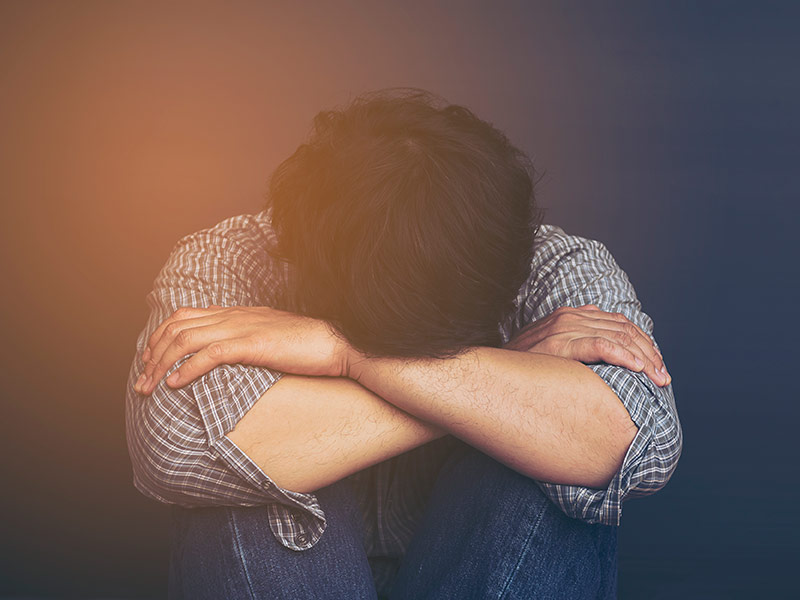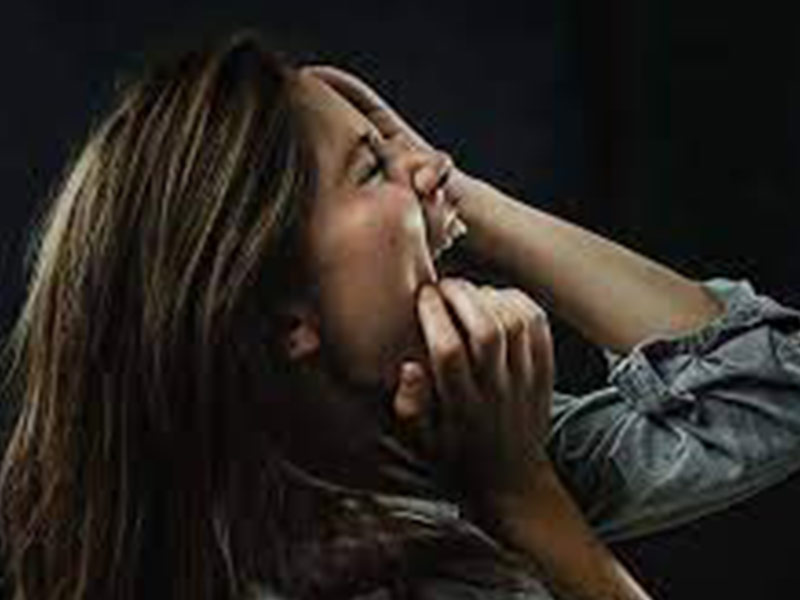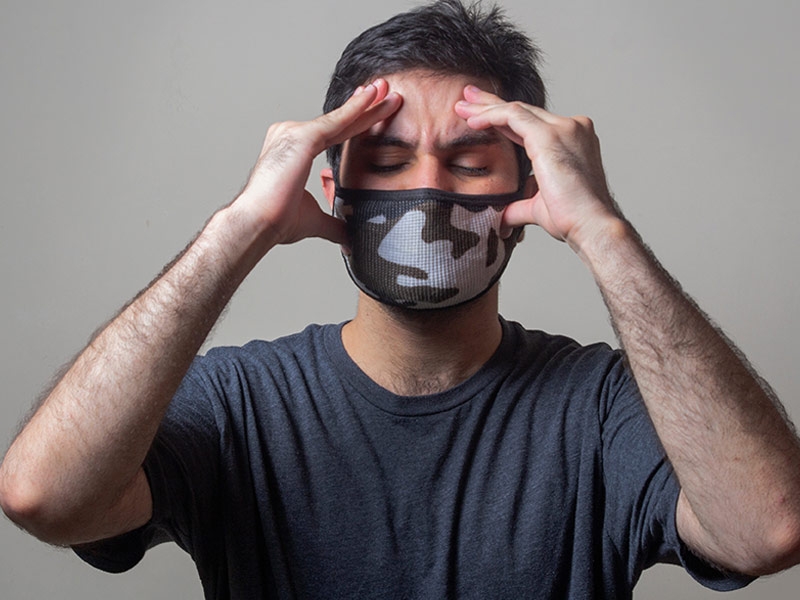Articles Tag: Mental Illness
We all experience distress in our life due to some traumatic life experience or another. Usually we are able to manage distress and are successful in overcoming it. However, sometimes the traumas we experience may be too difficult for us to deal with.
As mentioned in the healthy mind section, our experiences change our brain. Prolonged distress, thus, causes changes in the brain leading to mental illness. Some people may also be more likely to develop mental illness because it may run in the family. But since all of us can experience adverse life events, we all have the potential to develop mental illness.
Mental illness manifests in different ways in different people. Based on the symptoms that people present with, they receive different diagnoses. The diagnosis can even change, depending on the change in the symptoms of the individual. However, regardless of the diagnosis, certain signs are present in almost all people who suffer from mental health problems:
- Difficulty controlling emotions; appearing very sad or having outbursts of anger.
- Deteriorating performance at work or school
- Relationships being adversely affected
- Physical health getting worse
If you see these signs in yourself or someone you know then they may be suffering from a mental health problem and should get the necessary help. To learn more about treatment, visit the manage mental illness section. To learn more about providing support to people affected by mental illness, visit the caring for sufferers section.
If you search the internet or psychiatry manuals for a list of mental illnesses you will find dozens of diagnoses which can be very confusing. To make things simple, we will talk about some common types of mental health problems. To learn more, select an option below:
Psychosis is the most severe of all mental illnesses and involves sufferers undergoing such extreme distress that they may lose touch with reality. It is the most commonly recognized mental illness and leads to sufferers losing the ability to function in society.
Psychosis has the following symptoms:
- Hallucinations are sensory experiences without the presence of a stimulus. They involve the sufferer seeing, hearing, smelling or feeling something that isn’t there.
- Delusions are fixed or firm beliefs in something that is not true. The sufferer experiencing delusions may believe that someone is trying to kill him, that he has divine powers or possess other beliefs that are far from reality.
- Intense paranoia making the sufferer feel as if everyone is out to harm them.
- Social withdrawal due to the inability to communicate with people
- Erratic behavior which can involve the sufferer doing odd things such as wearing multiple layers of clothing in hot weather, smiling or laughing uncontrollably, putting garbage in their pockets etc.
- Symptoms of depression described earlier.
Psychosis occurs in a mental illness known as schizophrenia. If you feel that you or someone you know is experiencing these symptoms then learn more about managing mental illness, caring for sufferers or seek help.
Mania is often misunderstood as being a period of high energy and good mood which a lot of us casually use to discuss days in which we are more active or productive than usual. However, this isn’t very accurate since mania is much more complex and, potentially, devastating.
Mania can best be described as excess energy that manifests itself in accordance with the personality of the sufferer. The following symptoms can be found in mania:
- Hyperactivity due to high energy with the sufferer taking up different ideas and tasks
- Inflated self-esteem or grandiosity with the sufferer feeling that they are highly gifted or possess special powers.
- Intense happiness or irritability
- Recklessness and poor judgement resulting in decisions that may be harmful such as speeding or spending too much
- Dis inhibition and impulsiveness causing the sufferer to engage in risky behaviors such as sexual promiscuity, excessive drinking or gambling.
Mania occurs in a mental illness known as bipolar disorder. If you feel that you or someone you know is experiencing these symptoms then learn more about managing mental illness, caring for sufferers or seek help.
Addictions are conditions that involve sufferers regularly engaging in specific behaviors to deal with the distress they are experiencing. Although the behaviors may offer relief in the short term, prolonged engagement in them may lead to severe long term harm. Additions can vary from substances (cigarettes, drugs, alcohol) to certain behaviors (gambling, sex, shopping). Addictions often accompany other mental illnesses.
It is commonly thought that the addictive substance or behavior itself led to the sufferer becoming an addict. However, it is an established fact that addiction is just an unhealthy coping skill that sufferers use to deal with the distress they are experiencing. Therefore, dealing with the source of distress and replacing the addiction with a healthy coping skill is essential for recovery.
There is also a difference between substance use and substance abuse. Substance use means using a substance for short term stimulation that gives pleasure, but is not habit forming. However, substance abuse involves becoming so dependent on the substance that it is difficult to function without it.
If you feel that you or someone you know is suffering from addiction then learn more about managing distress, caring for addiction or seek help.
What is mental illness and what causes it? What are its main signs and symptoms?
As discussed in the mental health section, our experiences change the brain due to its plasticity. Chronic distress, thus, causes neurochemical changes in the brain leading to mental illness. Some people may also be more susceptible to mental health problems due to a genetic predisposition. But since all of us can experience adverse life events, we all have the potential to develop mental health problems. In addition to the symptoms of chronic distress, mental illness may have the following symptoms:
1.) Hallucinations; seeing, hearing, smelling or feeling something that isn’t there.
2.) Delusions; fixed but firm beliefs in something that is not true.
3.) Intense paranoia; lack of trust and feeling that everyone is out to harm the sufferer.
4.) Strange behaviour; the sufferer may behave erratically
5.) Suicidality; thoughts or actions that are aimed towards ending one’s life.
So how can you tell whether someone is developing chronic distress or mental illness? You can look at 4 key signs:
1.) Difficulty controlling emotions; appearing very sad or having outbursts of anger.
2.) Deteriorating performance at work or school
3.) Relationships being adversely affected
4.) Physical health getting worse
To learn more about the different treatment options for mental illness click next. To learn more about dealing with mental illness visit the manage mental illness section. To learn more about looking after people with mental illness visit the caring for sufferers section.
Keywords / Tags
- Anxiety|Depression
- Anxiety|Mental Illness
- Caring for Sufferers
- Communication Skills
- Depression|Mental Illness
- Distress
- Distress|Grief and Loss
- Distress|Healthy Parenting
- Distress|Relationship Problems
- Empathetic Listening
- Healthy Life
- Healthy Parenting
- Managing Distress
- Mental Illness
- Relationship Problems
- Self Care
- Understanding Therapy
- Work/School Life Balance





